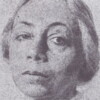Kathe Kollwitz

Kathe Kollwitz
KätheKollwitz,was a German artist, who worked with drawing, etching, lithography, woodcuts, painting, printmaking, and sculpture. Her most famous art cycles, including The Weavers and The Peasant War, depict the effects of poverty, hunger, and war on the working class. Despite the realism of her early works, her art is now more closely associated with Expressionism. Kollwitz was the first woman elected to the Prussian Academy of Arts...
NationalityGerman
ProfessionSculptor
Date of Birth8 July 1867
CountryGermany
To this day I do not know whether the power which has inspired my works is something related to religion, or is indeed religion itself.
Growing old is partly an inescapable process of accommodation and adjustment.
No longer diverted by other emotions, I work the way a cow grazes.
I am afraid of dying-but being dead, oh yes, that to me is often an appealing prospect.
It seems to me nowadays that the most important task for someone who is aging is to spread love and warmth whenever possible.
Bisexuality is almost a necessary factor in artistic production; at any rate, the tinge of masculinity within me helped me in my work.
As in everything else, I find that age is not good for much, that one becomes deafer and less sensitive. Also, the higher up the mountain you climb, the less of a view you get. A mist closes in and cheats you of the hoped-for and expected opportunity to see far and wide ...
I was put in this world to change it.
My work is not, of course, pure art in the sense that Schmidt-Rottluff's is, but it is art nonetheless... It is all right with me that my work serves a purpose. I want to have an effect on my time, in which human beings are so confused and in need of help.
One day, a new ideal will arise, and there will be an end to all wars. I die convinced of this. It will need much hard work, but it will be achieved… The important thing, until that happens, is to hold one's banner high and to struggle… Without struggle there is no life.
How long were the stretches of toilsome tacking back and forth, of being blocked, of being thrown back again and again. But all that was annulled by the periods when I had my technique in hand and succeeded in doing what I wanted.
There are moments on most days when I feel a deep and sincere gratitude, when I sit at the open window, and there is a blue sky or moving clouds.
Where do all the women who have watched so carefully over the lives of their beloved ones get the heroism to send them to face the cannon?
If all the people who have been hurt by the war were to exclude joy from their lives, it would almost be as if they had died.